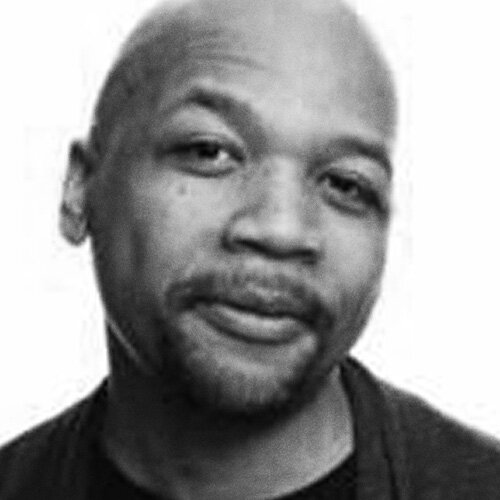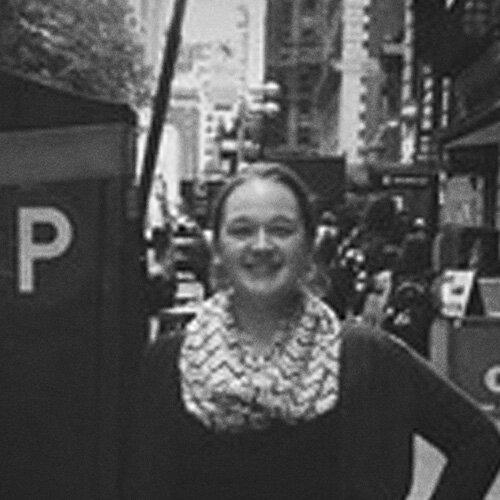Frustrating Mystery #3: No One’s Even Getting Back to Me Where I’m Applying
Beloved Contributors
The Void
I’d like you to visualize a black void.
In that void, sits the Freelancer. The dancing light of their screensaver illuminates two hands, clasped in prayer. They desperately vow their allegiance to disparate gods, asking only one favor in return: that Work will come their way. It is not known where the Work comes from, but surely it’s supernatural.
Now I walk in. I turn on the lights.
HAHA. Freelancers look really silly.
But besides that, what do we see? We learn that it’s not a black void after all, its an office! There’s even other people there. They call themselves Producers and Production Managers but they kinda sorta look like Freelancers. Maybe we can talk to them and figure out where they’re getting all this Work from?
Butterflies & Revelations
Until there’s an email in our inbox, we’re often clueless about when our next job is coming or who it's going to be with. But it doesn’t have to be that way. Those jobs that came your way weren’t random, they were solutions driven by business needs weeks in the making.
Entire careers exist around scheduling the industrial chess board. These chess masters are known as Production Managers. If you could understand the pieces at play moving the way they do, what would that knowledge empower you to do? Could you forecast Work like weather? Plan around that forecast? Use it to acquire more Work?
When your only clue is your inbox, it seems to come out of the blue. But with the right knowledge, you could be proactive and approach companies when they need your help instead of throwing your line in the water after all the fish have already been fed.
With this post I wanted to demystify much of the frustration that permeates life as a freelancer. Not finding work, not getting hired, not hearing back from applications; sound familiar? When we run into these problems it’s easy to look inward and say we're just not good enough. But to understand the whole truth, we need to see the industry from a clearer vantage point. Let's dive in.
Frustrating Mystery #3:
No One’s Even Getting Back to Me Where I’m Applying
What’s Really Going On Behind the Scenes
The hiring process can be a bit mysterious. You shoot out your work and it's not as if they send you a graded portfolio back with how you did. You have no idea if you're in the ballpark of being used or if you had no shot in hell. I found this very frustrating so I reached out to someone who knows what's going on behind the curtain and he filled in the blanks for us.
Design Studio Hiring Procedures
It’s All In Your Reel
"It's 100% based on reel and site. We work in a visual world, so it's a subjective appreciation for the visuals of a portfolio (unless they're a writer or production person). I'd never consider someone who just sent me a resume without visuals of their work even if it listed that they'd worked at good studios." -Will Arnold
Then It Goes to the Floor
"Once I think their work is worth pursuing, or whoever else receives someone's work who is worth pursuing, they'll typically email it out to the rest of the Creative Directors/Art Directors at the company to check it out. Then I’ll follow-up in a leads production meeting about the potential hire. From my experience, this mostly applies to internships because a company would go off of referrals or actual hands on experience with an artist if they're looking at hiring for staff most likely. Even then, you'd pass along a reel or site to the creative leads along with who referred the person and what they said about them. It's best to work with someone in a freelance/internship capacity before hiring them in general to suss out the fit for both the company and the artist. Once everyone agrees that someone is worth considering, you'll bring them in for an in-person meeting or talk over the phone to see how their communication skills are, generally feel them out, ask any questions you may have, answer any questions they may have, and to get a sense of the software they know and are familiar with if that's not somewhere listed on their site."
Hiring Agency Procedures
"So let’s say I post a job, I’m going to try to call out as much as of the aesthetic as possible that the client was looking for. If a client is bringing in a freelancer, they want someone who can pick up the job right away, so they don’t want to do a bunch of training/ software etc. I’m really looking for something that very much looks like what the client wants it to look like."
"We look at the portfolio first before the resume. (it’s super aggravating when people don’t put links to their portfolios) People might miss out on opportunities where they don’t attach their portfolios. And when we look, we’re looking for recent work, ideally work that’s been done in the past 3-5 years. I don’t want to open a portfolio and see work from 10 years ago. Once I look at the portfolio, and I see the aesthetic that the client has described to me they wanted to see, I look at the resume. Does the resume look professional, are there spelling errors? Obviously the resume carries less weight than the portfolio. Hiring managers often don’t have much time, because companies want people to start yesterday. Clients are too busy to interview their clients but they need work immediately. Clients will just reach out and it turns out we don’t that person anymore. On the talent side it can get really frustrating." -Theresa Reilly
How to Take Control
Look Deeper
"Your own network is the #1 way people find jobs. You should have a really strong social media presence, including LinkedIn and an easy to find portfolio." -Will Arnold
Lower Your Standards (Sorry)
"Would you rather be an artist or eat? “ If you’re really that passionate about only doing great work then you’re an artist. If you want to do work in the advertising industry than you’re selling a product. My end goal was to strive for 50/50 pay the bills and things I care about. If you’re doing this you’re winning. 60/40 is still pretty good." -Aislinn Haggerty
This sentiment was echoed by many of the people I talked to when it comes to getting work. I know I just wrote a post about being picky but that's your action plan for the feasts not the famines. It should be needless to say, when you need work you can't be too picky, and if you are being picky never do so publicly to the people asking you to work the job. Always let them know that you're unavailable rather than showing any sort of fickle attitude about being too good to work on their projects. Doing so may cost you the relationship for the next time when they do have something you want to work on. Be a good team player. Here's some more quotes on what it takes to get hired over and over again as a freelancer:
“When you’re talking about a portfolio, it’s not going to be everything you’ve ever done, usually it should be the things that are moving you towards the type of work you want to be doing consistently. BUT you should have a backup portfolio of stuff that’s maybe not so sexy but shows you can do the job that this client needs you to do. Maybe pharma/ financial isn’t the sexiest thing but you can feel good about it because it’s helping people get the treatment they need or it opens door in some way. People get really caught up on doing the amazing great work. As you move up it becomes more and more about being well rounded than anything. The amazing, sexy work doesn’t come around that often. There’s something to be said for being a really hard worker.” -Aislinn Haggerty, Lauren Scottow
"First and foremost you prove yourself to be a stellar artist, reliable, hard-working and that does all the groundwork. When i’m hiring people, unless its a very specific art style, a lot of it is just personality and assembling a team that will get along well and work hard. As young freelancers it just makes sense to hone your craft, be easy to communicate with, work hard and do a good job. As you do more and more work, you’ll be offered work and more work and it just snowballs. An easy way to hurt your chances is to turn down specific projects because you want to be picky, especially if you’re new to the freelance community. No one dreams of working on a mouthwash commercial or a sock commercial when getting into the industry, but despite that you do your job and you do it well without whining. When that type of negative attitude is exhibited by a member of a team, it can become project poison and bring others' morale down and affect the production. The best way to get rehired by me is to prove you can maintain professionalism and work hard without complaining even when you're not into the project." -Will Arnold
Look in the Mirror
Skillset
“Make sure you're being honest about whether you're applying to the right roles. Are you a designer or an animator first and foremost?”
Credentials
“An art school background typically helps a lot. There is a certain polish that people’s reels have, when I see it and I speak to them.”
“What clients you’ve worked with also matters and whether you worked with a team or completely by yourself.”
“Sometimes being a one man show is great. Sometimes a team situation is great. There's definitely jobs for both, but if your history leans one way or the other, applying to those types of jobs will be easier for you.”
“Broadcast, digital media, etc. there’s a bunch of subcategories about what’s going to be a good fit. Again, focus on what you've done already if you're having trouble convincing clients that you can do the job.”
Professionalism
“Speed matters, in the end this is a business.”
“When I’m working with anyone junior, my advice is “don’t try and be a Picasso on this one.” Have a clock inside your head and do the best job you can with the time allotted.”
“If I'm allotted 15 hours for this job and you did it in 20 then you’re 15% over budget. If you get that slow reputation that’s it they’ll never hire you again. They have to work within the confines of their budget.”
Personality
“Personality matters. It always matters. It matters with the client. There are a few prima donnas who can be a-holes but they will typically blow up jobs and relationships way more than they need to.”
-Robert Hoffman
Conclusion
My hope is that this article helped you understand some of the factors that affect whether you're employed or unemployed. It isn't possible to control everything but there's always an action you can take to improve your odds of success despite a job climate that may or may not be in your favor. At the very least I hope you find some comfort in shining a light on what's going on behind the scenes, as it's effecting your bottom line every single day.






